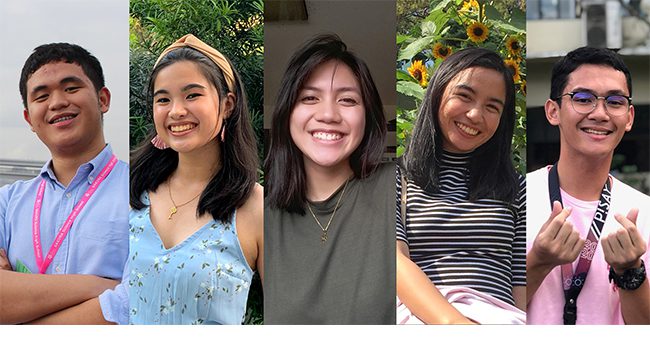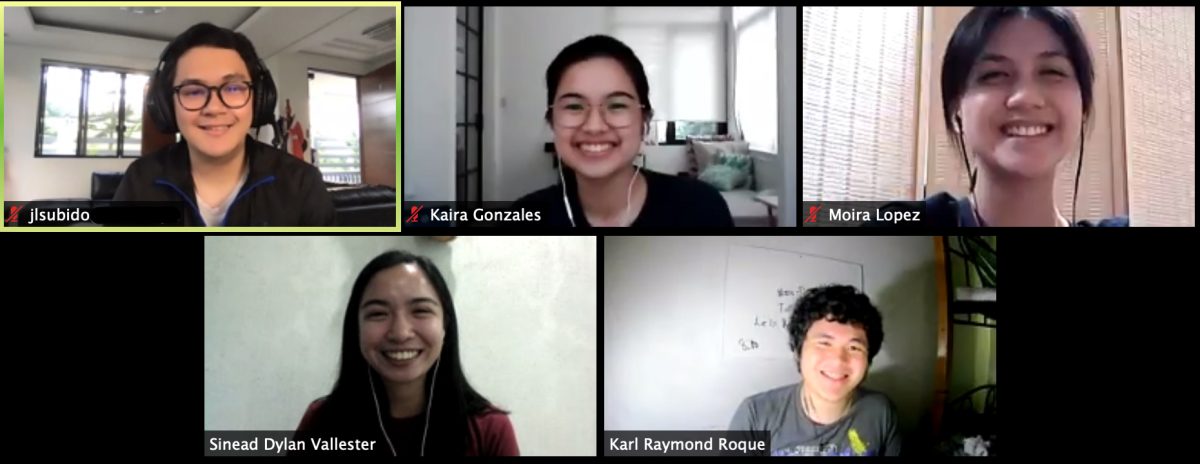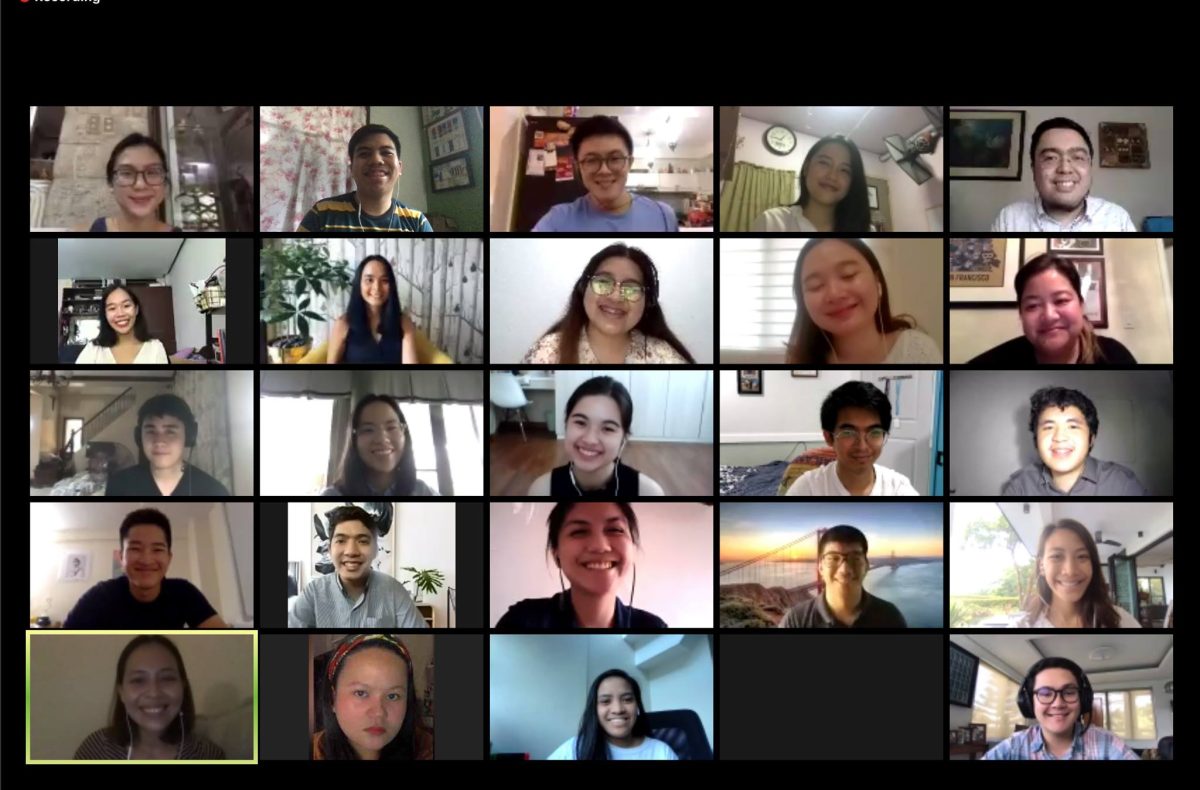by Bella Angela Del Rio
“Equity should be placed at the core of education interventions to provide the same learning opportunity to children who are most vulnerable and are from the most marginalized communities.”
The COVID-19 pandemic has put several businesses and institutions to a halt, requiring them to innovate how they do their processes. One of the hardest-hit sectors is education, having implemented large adjustments in teaching curricula for students.
Last 5 October 2020, public and private schools have formally reopened their doors although through remote means. But even then, with quarantine restrictions in the Philippines, both teachers and students had to quickly adjust from face-to-face to distance learning, making teachers spend nights designing for online curricula.
Despite the transition, we see new challenges the new normal has brought that is radically changing the education system.
“The COVID-19 pandemic exposed high risks for disadvantaged children already lagging behind on learning. Equity should be placed at the core of education interventions to provide the same learning opportunity to children who are most vulnerable and are from the most marginalized communities. Inability to address these, fuels inequality and reverses progress made in recent decades,” says the United Nations Children’s Fund (UNICEF) [READ: Learning should reach the most vulnerable, UNICEF says]
Socio-economic unfairness has been prevalent in the homes of families that are underprivileged. Although remote learning through online platforms seems like the light at the end of the tunnel, it may not be sufficient for teachers and students who do not have prior exposure to technology. Tasks such as knowing where to click, navigating through a device, or learning how to type quickly, are fundamental skills needed that a teacher who has been teaching through a blackboard for 30 years might not be accustomed to doing.
Challenge Accepted
According to the Philippine Statistics Authority, the percentage of young people who were Not in Employment, Education, and Training (NEET) in 2018 was higher [21.3%] than its rate before the pandemic – 18.7 percent in July of 2019. Given the prevalence of socio-economic unfairness seen in the new education setup, there is a chance that these numbers can aggravate and put young people at risk.
This is an issue Messy Bessy, the primary social enterprise under H.O.U.S.E. (Helping Ourselves through Sustainable Enterprises) Foundation, aims to address. In the past 13 years, they have provided education, training, and development for at-risk youth in extreme poverty by designing and executing supplemental learning modules for their scholars, ranging from well-being, self-awareness, financial and academic literacy, business, and leadership skills.
The COVID-19 pandemic brought several learning barriers for Messy Bessy’s scholars such as Wi-Fi access, infrastructure, access to online learning tools, and lack of a conducive home learning environment. These barriers made distributing and teaching their modules a challenge.
“We tried many things; we had to rely on messenger since no one had the internet then for fancy learning management systems. We would have to do a lot of revisiting on old processes or try to fix old methods so that they would fit what we needed, ” said Carissa, The Human Resources Manager of Messy Bessy
Determined to continue changing the lives of their scholars despite the hurdles, Messy Bessy collaborated with PhilDev Foundation, an innovation-driven non-profit that shares a mission with Messy Bessy on eradicating poverty, to run the first ever PhilDev Labs Innovation Challenge which seeks to create innovative solutions in distance learning.

One of the many groups who took on the challenge was a group of five college freshmen who, as they started going to university, related to the problem that the Messy Bessy scholars and several students in the Philippines are currently facing.
“There are several students experiencing this problem of adjusting to the new normal, so I thought to myself, why not contribute in a small way to solve this problem by taking on this challenge?” says Karl Roque, from Nagoya University.
‘Gat-Team,’ as what they call themselves, and the other groups went through a series of talks from design thinking and social innovation; to learning sessions where teams had to put themselves in the shoes of the scholars, and creators of the modules to understand deeper the problems Messy Bessy’s scholars face in remote learning.
It was not a walk in the park. As explained by one of the mentors in the Innovation Challenge, “I think our primary concern is on inclusive education… This situation has probably promoted social inequality – well off students, techy teachers, and schools close to the Local Government Unit (LGU) can receive better resources than those in far-flung areas,” says Leanne, Associate Project Officer at the Development Academy of the Philippines.
Behind the scenes
“This innovation opened us to the fact that there is so much room for improvement in this country. There is the potential to build and create something for different sectors while still making it more accessible for others,” says Moira Lopez, from the University of the Philippines – Diliman
Gaining a deeper understanding on the several issues the “new normal” is posing in the education sector, Gat-Team focused on accessibility as a crucial aspect they want to integrate in their innovation.
“We wanted to make accessibility the center of our project since we thought that was the most pressing issue right now given their [the scholars] situation. So we wanted to create something that is both accessible and low-cost,” says Kaira Gonzales, from the University of the Philippines – Diliman

Being quite young, their knowledge of coding was limited, because of this, they had to watch and browse through several YouTube tutorials and continuously find ways to create their final output. Still, despite the limitations they had, they did not look at age as a hindrance to innovating. Towards the last week of the innovation challenge, Gat-team pitched their idea – a low cost, accessible and easy-to-use platform. In the eyes of the judges and mentors, Gat-Team’s innovation was one of the ideas that Messy Bessy did not know how to implement themselves.
“We had many ideas before, on things we didn’t know how to implement, some of the innovations that the groups came up with was a dream. When the winning team pitched, we were delighted because someone else knew how to do something that we were just talking about; seeing some of our goals come to fruition,” Carissa added.
The process of creating an innovation within three weeks has been a big challenge for all the groups that participated. The challenge was also a learning experience for Messy Bessy, seeing critical areas that were not initially considered but crucial to be addressed. The innovation challenge became an avenue for innovators to step forward during this pandemic.
A message to young aspiring innovators
Inspired by their Innovation Challenge experience, Sinead Dylan Vallester from the Ateneo de Manila University shares to aspiring young innovators, “Keep trying, don’t lose hope. We were clueless but we found other ways to come up with the solution.”
“You can never have an original idea. Originality in the ideas that you think of is important, but at the end of the day it is a matter of just doing it! [Your] ideas might be the same as others’ but those who really make a change are those who take action,” said Kevin, PhilDev Foundation’s Program Director
Currently, Gat-Team is working closely with Messy Bessy and PhilDev Foundation to help their innovation come to life. As part of further support, their innovation will be incubated and funded for pilot testing.
“Don’t be afraid to take on new opportunities and look for opportunities. Many people have the potential to do great things; they just don’t know how to concretize these great ideas. In our case we found the Innovation Challenge online. Several people need your help so don’t be afraid to seek them out first.” says Juan Gabriel Subido, from the University of the Philippines – Manila.
